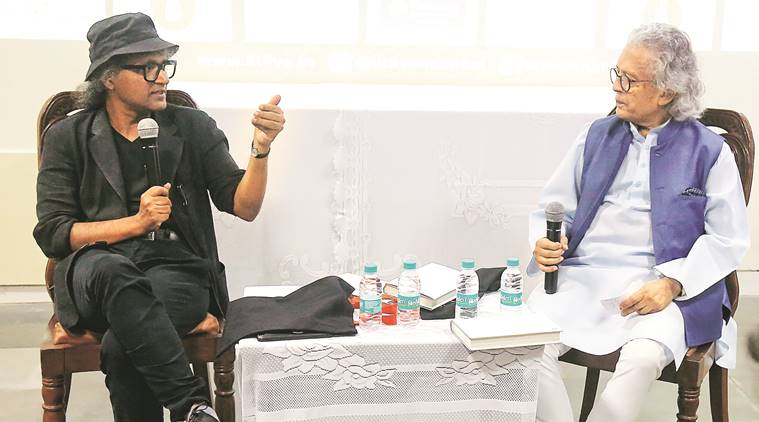
We have too few women in public space. That’s why a woman going to work every day becomes, in itself, a very powerful statement. And a social compact that cannot guarantee her right to go to work and return safely is broken and has to be contested,” said Raj Kamal Jha, at the Mumbai launch of his fifth and latest novel, The City and the Sea.
In conversation with writer and former editor Anil Dharker at Literature Live!, held at the convention centre, Sophia College, the 53-year-old novelist and Chief Editor of The Indian Express, spoke on why he doesn’t feel the need to name his characters, how the newsroom selects and shapes his fiction and how the backstory needs to inform the stories we tell.
In The City and the Sea (Penguin Random House), a copy editor at a newspaper goes to work one day and never returns home. Weaving together fact and fiction, Jha takes off from the rape of the 23-year-old student in a Delhi bus on the night of December 16, 2012, and tells us a story of what could have been.
“We have the world’s largest number of young people but less than a quarter of boys and girls graduating school are enrolling in higher education. Yet, there are more girls in our schools and colleges than ever. As these numbers grow, they will claim their rightful space in the public space, that will hopefully put more pressure on policy and lawmakers to secure that space,” said Jha. “But the safety of that space for women will also be linked to how our boys are growing up and in a country so divided, that will remain a challenge.”
At the launch, attended by Shyam Benegal, Tasneem Zakaria Mehta, students and teachers among others, Dharker said, “I cannot recommend this book enough. The dedication simply says ‘In memory of’. The novel starts with the rape case and yet the word ‘rape’ is never used.”
Asked why, Jha said: “I didn’t use the word because I didn’t need it. Same with the characters, they don’t have names — they are the narrator’s emotional constructs rather than actual flesh and bone.”
Referring to George Orwell’s 1984 where “nothing was your own except the few cubic centimetres inside your skull,” Jha said that this space was shrinking. “These days, we are under pressure to vote all the time, forced to take sides in every conversation; the novel is a way to create a space where we don’t need to do that, expand those few cubic centimetres,” he said.
When Dharker asked him about how his day job as a newspaper editor determined the subject of his work, Jha spoke about how the line between reality and imagination is not as impermeable as it’s perceived to be. “We constantly shuffle between the two. If news starts with the five Ws — who, what, when, where and why — fiction perhaps begins with what if.”
It was announced that 50 per cent of the author’s share of the book’s royalties will go to Jan Sahas, an organisation that for the past 20 years has been working towards supporting survivors of rape, sexual violence, and the liberation of manual scavengers.